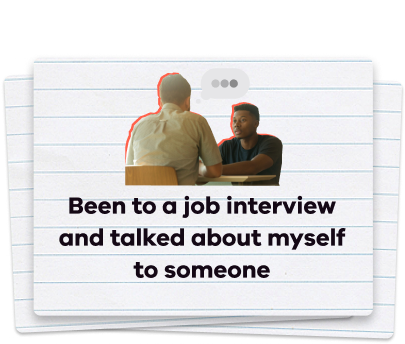Many jobs never get advertised.
Instead, an employer who’s looking for a worker gives the job to a person they already have a connection to or someone they’ve already met.
So how do you get to be the person who gets the job?
What is a cold call?
Cold calling is when you contact a potential employer to find out if they have any job opportunities.
Cold calling isn’t just about using your phone to make a call. You can cold call by email and in person as well as on social media – Instagram DMs are a good place to reach out.
In-person cold calling is a good idea if you’re looking for work in retail or hospitality. You might visit your local retail shops or restaurants and let them know you’re keen to find work.
You can take in a resume and have a conversation with whoever is working that day.
Benefits of cold calling
Even if the employer you contact doesn’t have a job going, they can still help you in other ways.
They might:
- offer to keep your resume and contact you if something comes up
- suggest you contact them later about a job that will be available soon
- offer you work experience, a placement or an internship
- tell you about another employer you can contact that is looking for workers.
How to cold call
Cold calling might sound intimidating but it doesn’t have to be.
Take some time to prepare your cold calling approach and you’ll feel more confident to pick up the phone, write the email, or head into that local store, café, or restaurant.
Here’s a step-by-step approach to cold calling to help get you started.
1. Make a list of contacts
Make a list of everyone you know who could help you find a job.
This could include:
- parents
- teachers
- relatives
- friends
- members and coaches of teams or clubs you belong to.
Next, you need to:
- Get in touch with everyone on your list.
- Tell them you’re looking for work.
- Ask them for contact details of people they know who could help you, or employers you could contact.
- Add the contact details for these people and employers to your list.
Also think about:
- employers in your local area
- companies you'd really like to work for.
Look up their contact details online and add them to the list.
2. Do your research
Before you make a call or contact a potential employer, do some online research about their business.
Find out what's involved in the kind of job you're looking for. If you can, find out the name of the person you might contact.
3. Plan what to say
Knowing what you want to say can help you with confidence. This can make contacting people you don’t know a lot easier.
Whether you’re contacting people in-person, over the phone, by email or through social media you should:
- introduce yourself
- explain why you’ve got in touch
- explain your experience.
5. Work out when to drop in
If you’re planning on dropping your resume into a café, restaurant or store, plan your timing carefully.
For example, don’t contact a restaurant around dinner time, or a retail store in the middle of a big sale.
Emailing and DMing on social media is best during business hours. Give people a couple of days to respond.
6. Be persistent
Not every cold call will go well. Most employers you speak to will not have a job for you.
Even if they don’t have a job, you can always use the opportunity to ask:
- what they look for in the staff they employ
- where they advertise positions
- if they know another employer who’s looking for staff.
The most important thing about cold calling is to keep doing it. The more you do it, the better you'll get at it.

